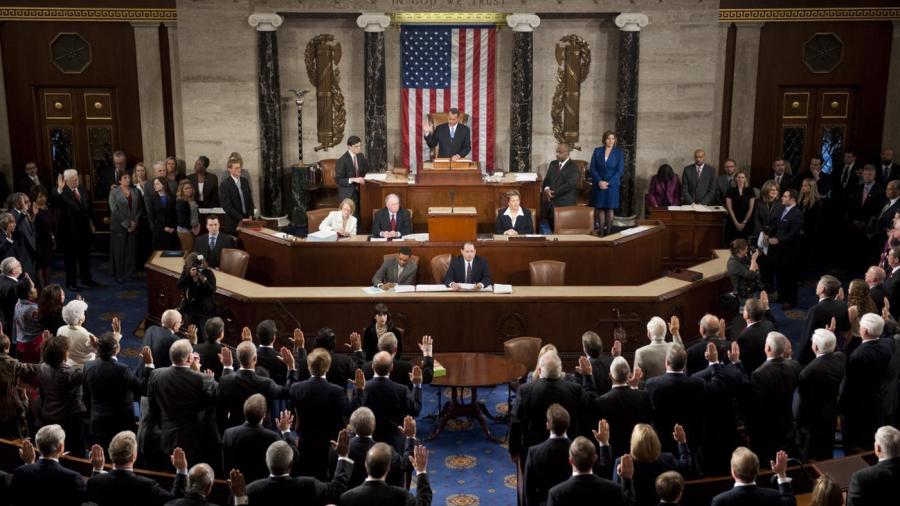What Are the Special Duties of the United States House of Representatives?

The special duties of the U.S. House of Representatives include the power to initiate bills to collect tax money and other revenue, the ability to impeach federal officials and the duty to elect the president if there is a tie in the electoral college. In addition to these special duties, the U.S. House of Representatives, along with the U.S. Senate, proposes, studies and votes on legislation that affects the United States at the federal level. In order for a bill to be sent to the president for approval, it must pass both the U.S. House and the U.S. Senate.
Article 1 of the U.S. Constitution spells out the specific duties of both the U.S. House of Representatives and the U.S. Senate. Because the U.S. House of Representatives has more members, with closer ties to their constituents, it is charged with the responsibility for developing fair methods of taxation in Section 7: Clause 1. The sole power of impeachment is granted to the House in Section 2: Clause 5.
The twelfth amendment to the U.S. Constitution deals with the election of the president. This amendment gives the House of Representatives the duty to decide a presidential election when the electoral college vote results in a tie. In this case, the U.S. House votes by state with the representatives from each state only having one vote.





